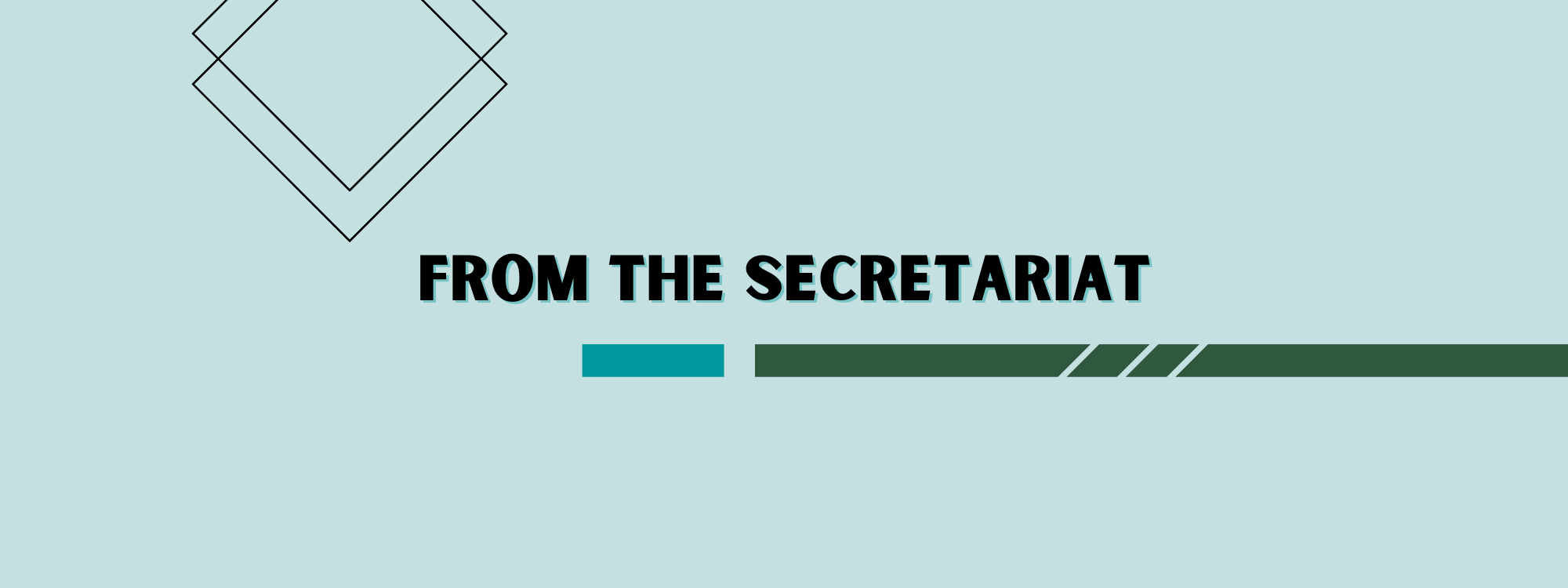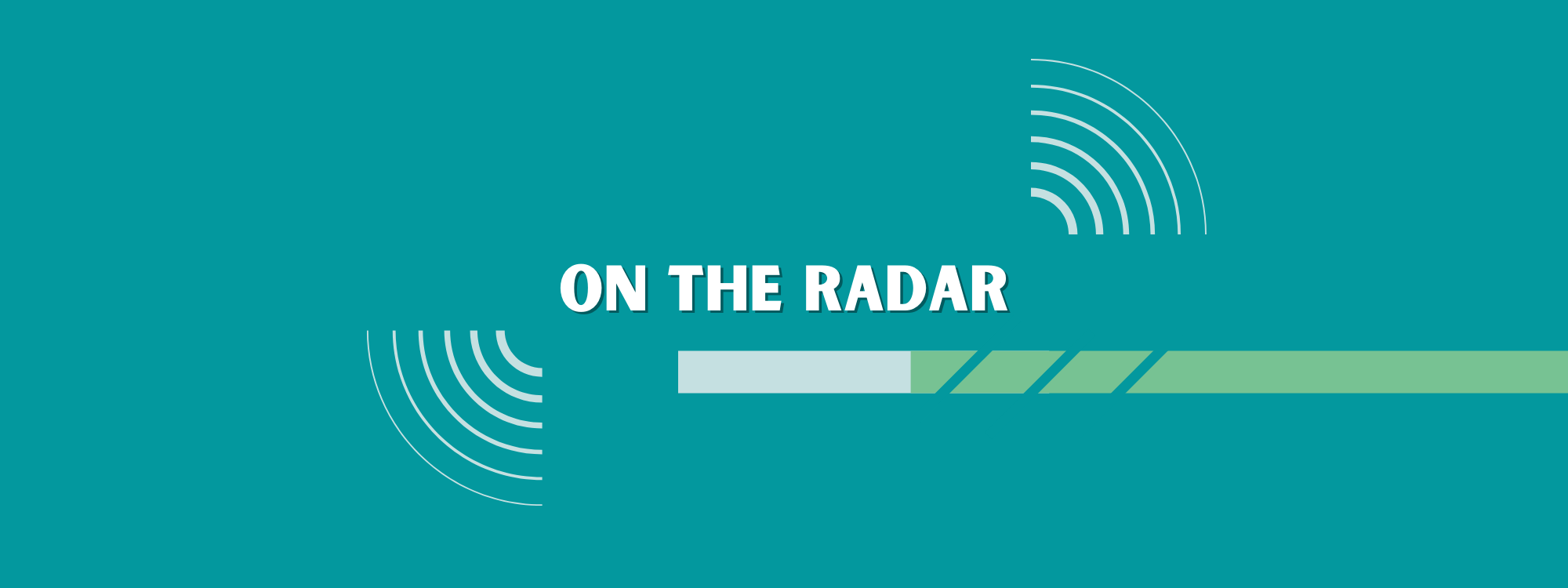NEWSLETTER DETAILS
News Briefs (February 2023)
Our News Briefs bring you the latest highlights from the advocacy efforts of APRRN and our members, as well as keeping you informed on upcoming events and activities. We strive to provide regular updates on the network’s activities and developments in the refugee protection sphere, alongside the emerging political climate in the Asia Pacific region. We welcome contributions from members! Please share your updates, information, or resources with Sharon at msco@aprrn.org.

12-17th February: Core Members of the Rohingya Working Group undertook a lobby mission to Jakarta to learn more about Indonesia's plans for its term as Chair of ASEAN and how concerns related to Rohingya displacement can be raised in discussions on ASEAN’s Five Point Consensus on Myanmar. In addition, the delegation briefed Government, ASEAN bodies, and civil society stakeholders on APRRN’s main concerns to ensure the Rohingya crisis remains on the agenda as a priority, and to explore opportunities for collaboration.
22-23rd February: APRRN Chair Hafsar Tameesuddin attended The Queer Displacement conference in Sydney to discuss the need for adequate funding, the inclusion of the LGBTQI community in mainstream services and centring lived experiences. APRRN will continue to ensure inclusive approaches in our advocacy for refugees and forcibly displaced populations in Asia Pacific Region and stand in solidarity with LGBTQI+ communities and organizations advocating for inclusion, protection and promotion of the rights of LGBTQI+ communities in our work and beyond.
26th February: Chair of the Refugee Leadership and Participation working group, Najeeba Wazefrost, joined a panel of other women for a discussion on Human Rights and Gender Equality for Refugee Women.
Participants are in the third and final module of the Skills Enhancement Training for RLI/Os, having now practised the organizational systems from previous modules, including: data collection, monitoring and evaluation (M&E), case management, and grant-making processes. Next, participants will be exploring tools and practices for implementing and managing projects. From there, participants will examine ways of communicating project findings through evaluations and external reports. The last two weeks of the group training will explore how to communicate externally as an organization and how to explore strategic engagement with other organizations. Until the end of March, participants will join a series of one-to-one meetings for individualized support across a range of areas, including: reviewing organizational M&E plans, organizational goal setting, and discussing proposals.
For further information please contact Zerrin Holle, the Project Coordinator.
Announcements + Shifts in Priorities
20th February: Lars Stenger, the Secretariat's Head of Programs, has taken over as Interim Secretary General for a period of two months following the departure of Secretary General, Chris Eades, on 17 February. Recruitment for the Co-Secretaries' General positions is progressing well and we expect to have new leadership in a post in April. More news to follow!
Member Spotlight!
The Sisterhood, founded by refugee women in Jakarta in 2018, works to promote the rights and well-being of women as leaders and survivors in Indonesia. So far, over 1,000 refugee women from Afghanistan, Cameroon, Eritrea, Yemen, Iran, Iraq, Palestine, Pakistan & Somalia have taken part in their activities - online and at the Sisterhood house - to develop skills, resources and confidence to better survive their life in transit [Video]. This year, Sisterhood will be launching Phase 2 of its flagship program “Power of Sisterhood” so that refugee women in Indonesia gain support, connections & resources to use the law to protect & secure justice for SGBV survivors.

From APRRN Members
2nd February: To mark the second anniversary of the Myanmar Coup, Fortify Rights published 'We Will Die There' - a short film about three ethnic-Karen teachers from Myanmar seeking refuge in Thailand to escape ongoing airstrikes by the military. The teachers and their young students (aged 2-13) were repeatedly pushed back by Thai authorities to an active armed conflict zone in Myanmar. Read more here.
7th February: The Refugee Council of Australia (RCOA) has urged Federal Parliamentarians to support the Greens’ Bill to evacuate people held in offshore processing to safety while they wait for durable solutions. The Migration Amendment (Evacuation to Safety) Bill 2023 would ensure that people can access medical treatment and mental health support.
7th February: Ahead of the Bali Ministerial Conference, Amnesty International Australia has released a report ‘A Better Plan for Rohingya Refugees’ urging the Australian Government, as Co-Chair of the Bali Process, to urgently implement a coordinated and regional response to save lives and respond to a worsening crisis for people seeking asylum and refuge, particularly Rohingya from Myanmar fleeing violence and persecution. Press release here.
National Updates
Australia
8th February: In an attempt to subvert a recent Federal Court judgement, the Albanese Government introduced legislation that will force people recently released from immigration detention, including people seeking asylum and refugees, back into detention. Human rights organisations including the Refugee Council of Australia condemned the rushed bill. Read more here.
10th February: The Bali Process 8th Ministerial Meeting took place in Australia where 'Ministers agreed to remain seized of the matter of the recent irregular maritime movements in the Andaman Sea.' Co-Chair Ministers tasked the Senior Officials Co-Chairs to reactivate the Consultation Mechanism and 'to explore options for Bali Process engagement and support.' Read the Co-Chair statement here and Joint Statement by IOM/UNHCR/UNODC.
Big Breakthrough!
13th February: 19,000+ people on temporary protection visas (TPVs) or safe haven enterprise visas (SHEVs) in Australia will be allowed to apply for permanent visas. People granted a permanent visa will now be permitted to apply for social security payments, and access the NDIS and higher education assistance. Permanent visas open the door for them to become Australian citizens and more importantly, reunite with family members through sponsorship. Read more here.
Bangladesh
16th February: With very little to spare, Rohingya refugees are among people in Bangladesh sending blankets, clothing and other essentials to earthquake survivors in Turkey and Syria. Together, they have donated 700 blankets and 200 jackets, in solidarity with Turkish charities who were some of the first to help the Rohingya as they fled the massacres in 2017. Read more here.
16th February: The UN World Food Programme (WFP) will reduce rations for the Rohingya Refugee Response Fund by 17 per cent in March. If no new funding commitments are made by April, more cutbacks will be made. The UN is urgently pleading for donations to the programme. Read more here.
23rd February: In response to the UN World Food Programme announcement, Fortify Rights is calling on donor governments to ensure Rohingya refugees in Bangladesh have access to adequate food aid and is urging the Government of Bangladesh to lift restrictions on Rohingya’s right to work and freedom of movement. Read more here.
Myanmar
1st February: Two years on from the Coup, it appears the Myanmar crisis has taken the backseat and is being neglected by donors. The UN-backed response plan for Ukraine is five times higher than the one for Myanmar. Last year, only 35% of the response plan for Myanmar was funded, compared with 79% for Ukraine. The UN explained that the decision is based on a “realistic analysis of possible responses within a challenging access and funding environment”. Read more here.
Malaysia
23rd February: Malaysia's Home Minister made a welcome announcement on 16th February that children detained at immigration depots will soon be placed in the care of organisations that specialise in child welfare. However, on 23rd February in a written reply to a question in parliament, the Government confirmed that 150 foreigners, including seven children, died at the facilities last year. Human rights groups have urged Malaysia to investigate conditions.
23rd February: Amnesty International Malaysia condemns the deportation of more Myanmar nationals including children. The statement was in response to the 114 people deported earlier this year, who were part of an ongoing case filed by Amnesty International Mlasyaic and Asylum Access.
Papa New Guinea
Catholic Bishops Conference of Papa New Guinea & Solomon Islands released a report on the living conditions of West Papuan refugees in Port Moresby, Papua New Guinea. The report summarises findings from a survey conducted last year and draws on the organisation's involvement in working with this marginalized group over the past three years.
Pakistan
The study Finding peace journalism: An analysis of Pakistani media discourse on Afghan refugees and their forced repatriation from Pakistan, investigates coverage of Afghan refugees by English-language media in Pakistan and explores how it is shaped by the political stance of the Pakistani state and establishment towards Afghanistan. The author argues that pressures from the Pakistani state and military establishment are key reasons for the use of frequent and negative framing, such as terrorism and ethnonationalism, in media coverage of Afghan refugees.
Regional Updates
Coloniality and case law on the Australian asylum offshoring scheme presents an analysis of case law from Nauru, Australia and Papua New Guinea regarding the Australian offshoring scheme for people seeking asylum. The article explores the extent to which patterns of colonial thought and ideology played a role in the reasoning of the courts.
Global Updates
6th February: Refugees International and the Women Peace Network hosted a panel discussion on the increasing number of Rohingya refugees risking their lives at sea. Policy experts and Rohingyas directly affected by the crisis gave their recommendations on a way forward. Read more here.

On the Radar
Tools & Support
AMERA International has launched new self-help kits for asylum-seekers going through the refugee status determination process in four languages. While legal representation should be available for refugees throughout the asylum process, these self-help kits are intended to be of use in situations where it is not. The guidance is intended to support people with their asylum claims irrespective of the jurisdiction or country they are in. Access the kits here: General RSD, Asylum interviews, Appeals, Reopenings.
In case you missed it! APRRN, PILnet, the Asia Pacific Network of Refugees (APNOR) and AMERA International have launched a series of legal information sheets in English and Dari for Afghans seeking legal assistance in (or relocation to) France, India, Ireland, Italy, UK and the US. The information sheets include options for visa schemes, asylum and family reunification procedures, professional visas, and student visas. Access them on the APRRN Information on Afghanistan microsite. Please give us feedback by completing the form in English or Dari. Many thanks for your help!
Awards & Nominations
Nominations are now open for the annual UNHCR Nansen Refugee Award to recognize individuals, groups or organizations that have shown exceptional dedication in protecting and assisting refugees, internally displaced or stateless people.
The 2023 global laureate will receive a commemorative medal and a monetary prize of US$100,000 to be reinvested in the humanitarian initiatives for which they are being recognized. Several regional winners will receive a smaller monetary prize to further their humanitarian work. Deadline 17th March 2023.
Funding for Refugee-led organisations & initiatives (RLO/RLIs)
APRRN maintains an open-access database with information on donors that Is created with RLOs/RLIs in mind. Access here.
Funding Opportunities
Research
Gerda Henkel Foundation is offering funding to support internationally oriented, multidimensional research projects on forced migration that address questions receiving insufficient attention in the relevant debates thus far. Funding is available for research projects or research scholarships (PhD, Postdocs and Postdoctoral Lecture Qualification). Priority areas: Forced-migration infrastructures; South-South (im)mobilities; Multiple displacements; Displaced people’s agency; and (Supra-)state influences on displacement processes. Deadline: April 27, 2023.
IPA Human Trafficking Research Initiative is offering seed grants for researchers and organizations to design and carry out impact evaluations exploring interventions to reduce human trafficking or respond to the needs of human trafficking victims. The objective of these small grants is to advance early-stage discussion between researchers and implementing organizations to the point where they have viable research project designs and plans so they can become viable applicants for full-scale studies at a later stage. Amount: $10,000 - $50,000. Deadline: March 31, 2023.
Rapid Response (Rolling)
The UN Women’s Peace and Humanitarian Fund (WPHF) is seeking credible and experienced international, regional, or national NGOs to support its Women Human Rights Defenders (WHRD) Window in providing financial support to WHRDs from and/or working in conflict and crisis contexts in Asia and the Pacific, especially Afghanistan and Myanmar.
The WPHF will grant a maximum of $400,000 USD to an I/NGO and up to $700,000 USD to a consortium of I/NGOs. Deadline 10 March 2023.
US Bureau of Democracy, Human Rights and Labor (DRL) has launched a global call for proposals on "Leveraging Intersectionality to Ensure Zero Obstruction to Women’s Empowerment". Proposals should focus on women from marginalized communities who face discrimination, violence and significant barriers to exercising their human rights.
The two objectives of the call include strengthening the capacity of CSOs and creating shared impact through advocacy by CSOs to promote women's empowerment.
Amount: $1,000,000. Deadline: 22 March 2023.
Canadian & U.S. Government Funding
All Countries - Accountability for Religious Freedom Violations Globally: The U.S. Department of State Bureau of Democracy, Human Rights and Labor (DRL) is accepting proposals for programs from CSOs on documenting violations of religious freedom and leveraging accountability mechanisms. The program will also support actions by regional and international bodies as a result of the documentation. Grant Size: $1,000,000 for 2-3 year project. Deadline: 1 May 2023.
Bangladesh: U.S. Embassy Dhaka Public Diplomacy Section (PDS) is accepting program proposals that strengthen, expand, and celebrate U.S.-Bangladesh people-to-people ties, institutional linkages, and bilateral cooperation. For example: seminars, speaker programs, capacity-building workshops, exchanges and English language programs. All programs must include an U.S. cultural element, or connection with U.S. experts, organizations or institutions. Award size $20,000 - $75,000. Deadlines 31 March 2023 and 30 June 2023.
Pakistan
The U.S. Department of State Bureau of Democracy, Human Rights and Labor (DRL) is accepting proposals from non-profit organisations on Improving Workers Rights, Strengthening Independent Media, and Expanding Civic Participation in Pakistan. Amount: $1,250,000 - $1,500,000. Project Duration: 24 months. Deadline: 24 April 2023.
U. S. Public Diplomacy Grants Program for Pakistan is inviting proposals on three priority areas: 1) empower women leaders for peacebuilding, 2) promote leadership for women through sports, and 3) develop capacity of business incubation centers in Punjab. Grant Size: $50,000 to $500,000. Deadline: 2 May 2023
India: U.S. Mission to India (PD Chennai) is offering grants to non-profit organizations for programs that foster stronger bilateral and regional ties. Proposals should include and promote understanding of U.S. policy and perspectives. Priority areas include: raising awareness on human trafficking, promoting women's participation in the workforce, access to education, promoting common values, increasing capacity of human rights defenders, and capacity building of organisations working on inclusion of marginalized groups. Grant size: $5,000 - $25,000. Closing Date: 28 February 2024 (accepted on rolling basis).
Cambodia, Laos and Thailand: Canada Fund for Local Initiatives (CFLI) is welcoming Concept Notes for small-scale, high-impact projects on inclusive governance (including 2SLGBTQI+ and human rights), peace and security, inclusive growth, gender equality, and climate action. Priority given to local partners. Average Amount: $15,000 to $30,000 CAD. Detailed Information available here for Cambodia, Laos, and Thailand. Deadline: 31 March 2023.
Thailand: U.S. Embassy Bangkok Public Affairs Section is accepting program proposals from non-profit organisations and individuals to carry out programs that strengthen cultural, economic, and public health partnerships between the US and Thailand. All programs must include an American cultural element, or connection with American expert/s, organization/s, or institution/s. Priority activities include: strengthening democracy, public participation, transparency, and rule of law in governing and political institutions; and promoting human rights and freedoms. Amount: $5,000-$25,000. Deadline: 31 July 2023.
Small Grants
The Taiwan Foundation for Democracy is accepting proposals on strengthening democracy and human rights in Taiwan and Northeast/Southeast Asia. Project categories include: advocacy, research, conferences, publications and education. The majority of grants are between US$3,000 and US$20,000. Deadline: 15 April 2023.
Subscribe to our newsletter
Keep up to date with our work and the work of our members in this region